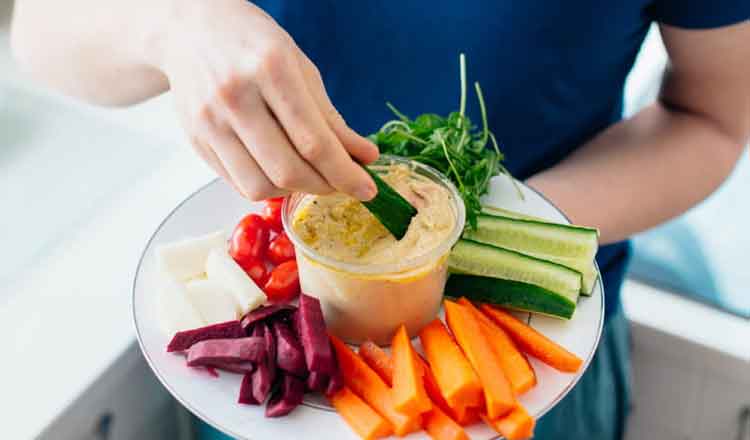Athletes daily go through a hectic routine of training to allow them to be ready for gameday in the best shape possible. On average they need to consume around 2500 calories daily, which is understandable considering the amount of work they put in to stay fit.
This rigorous routine means that such people follow a strict 3-meal diet and they are constantly snacking on something. Anyone aspiring to become an athlete always wonders about what to eat before and after workouts. What foods will speed up recovery? And are constantly on the lookout for ideas they can add to their pallet to complete their calorie intake.
Scroll through to read more about the importance of this snacking habit and some ideas to enhance performance.
Why Healthy Snacking Is Important?
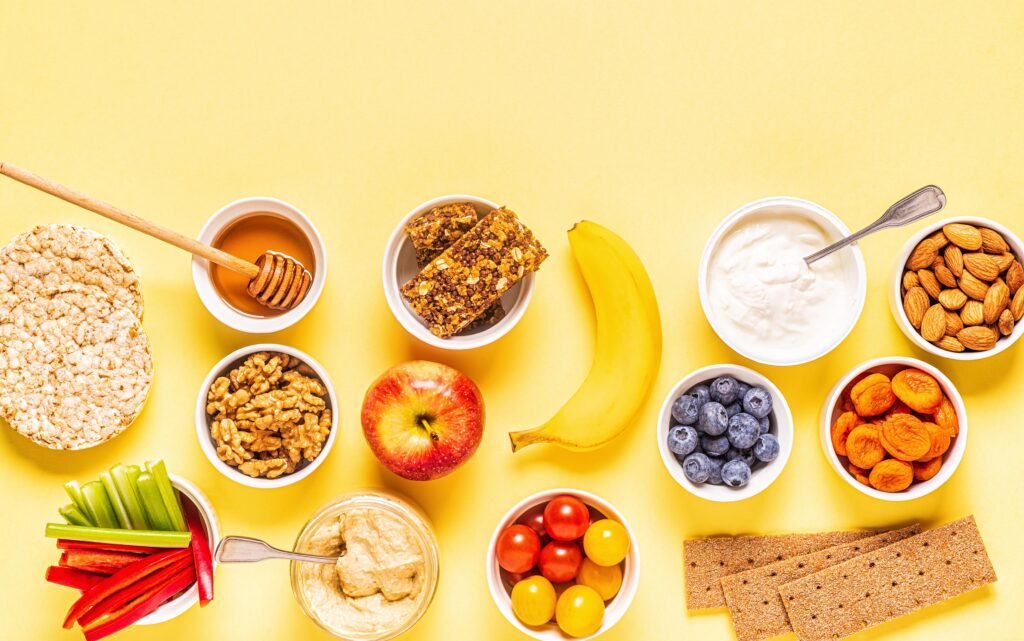
Just imagine for a second that you are friends with an athlete and he is talking about his diet and you hear him saying “I try to eat something every hour or two” You’ll probably end up wondering how can this be healthy.
Well, let us explain! Snacking habits are suggested because they play a role in maintaining sugar and blood levels. Keeping your energy levels high allows athletes to hold back their calorie intake during meals. This is because eating snacks throughout the day keeps you fuller and prevents hunger strikes from taking place which is an athlete’s hot zone as they can end up overeating or consume comfort foods that are fried and sugary.
This routine might seem unhealthy from the outside but following it helps you to maintain weight because it prevents you from becoming hungry so that you don’t end up eating junk food, especially at night after you ignore these hunger cues throughout the day.
Executing this plan can benefit athletes a lot by:
- Maintaining Energy: Eating healthy snacks regularly stabilizes sugar levels and ensures that the body gets enough energy throughout the day. Making it important if you want to get optimal performance during workouts and games.
- Avoiding overeating: Overeating can only be tackled if you are not hungry because as your hunger reaches a certain level, there is a high chance you will end up getting a burger or a pizza down the road. Eating the right snacks all day prevents this incident from taking place.
- Diverse Nutrient intake: Snacking on veggies, fruits, proteins, healthy fats, and grains allows your body to get the complete nutrients it requires. Helping in the overall performance of the athlete.
Healthy Snacks Perfect for Athletes
Cereals
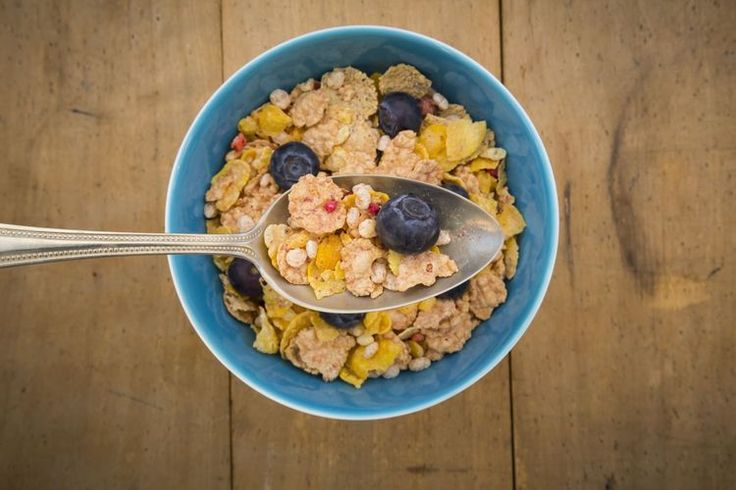
People have made cereal a breakfast thing, however, whole-grain cereals rich with vitamins and healthy carbohydrates are good enough to be consumed throughout the day. However, cereals that we had as kids might be tempting but should be avoided as they have a high content of sugar.
Whole-grain cereal is usually mixed with raisins, nuts, and fruits like bananas, and can also be consumed dry like a pack of crisps, either way, they pack a nutritional punch.
Fruits and Berries
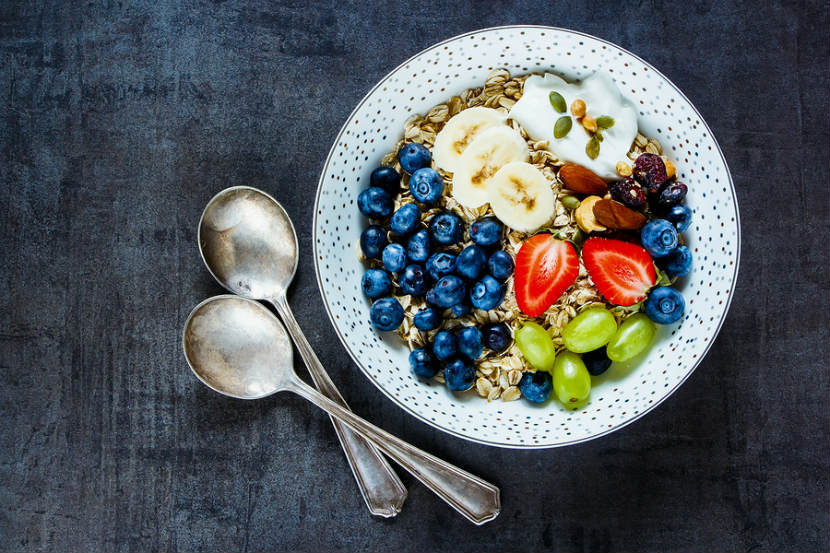
Anything consumed in its purest form is nature’s biggest gift to us. Fruits are one of such gifts that often get ignored when following a diet plan. These contain great natural sources of vitamins and nutrients that are of major help to enhance cardiovascular health and, the function of the immune system, which results in an increased physical performance.
Bananas contain high levels of potassium which you lose a lot of during an intense workout. Oranges are rich in Vitamin C, which reduces inflammation and allows the body to absorb iron from other foods.
Berries are full of antioxidants and protect the body from illnesses. These few reasons make fruits a good nutrient to add to your plan.
Quinoa and Greens
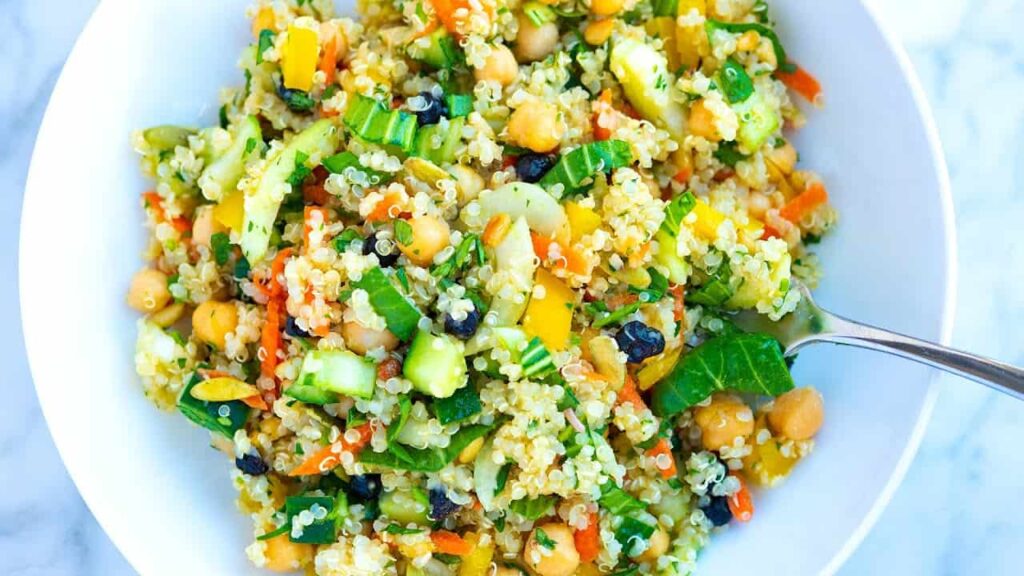
Vegetables seem dull but are a major source of healthy carbs. Putting together a salad along with arugula and kale will provide a healthy number of vitamins and antioxidants.
Vegetables that increase hydration like watermelon, celery, and bell peppers are a great refreshment after a workout. They contain great amounts of Vitamins and also iron and calcium, which reduces blood pressure.
To enhance this even further you can add quinoa grains that will add protein and fiber to the snack. Quinoa helps maintain blood and sugar levels so adding this is your diet can help out majorly.
Yogurt
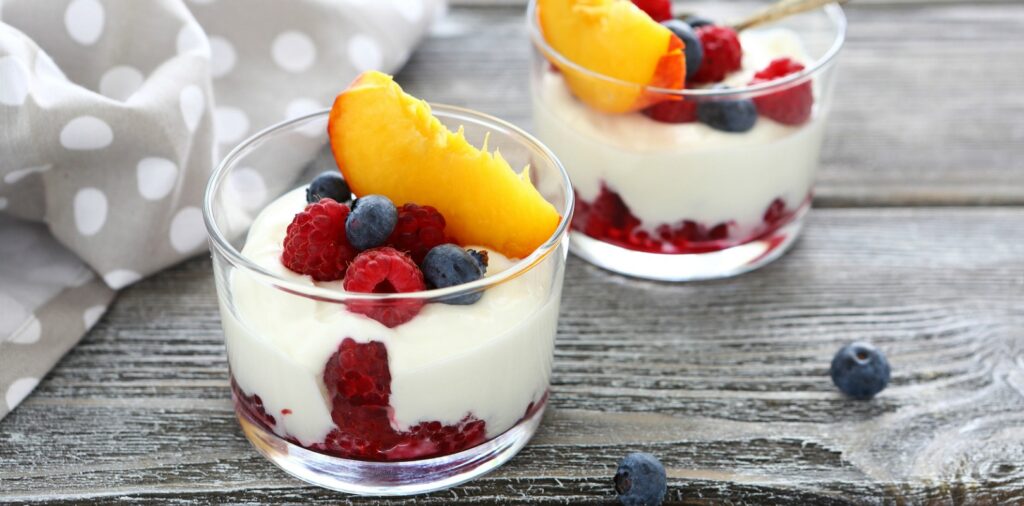
Having healthy amounts of calcium, protein, and Vitamin D, Yogurt is truly underrated because it can be consumed so easily as it has an almost liquid-like texture. Yogurt also goes well with chia seeds which themselves contain fiber, proteins, and nutrients great for bone health like calcium, magnesium, and phosphorus. Yogurt can also be mixed with fruits to flavor it.
Smoothies and Shakes
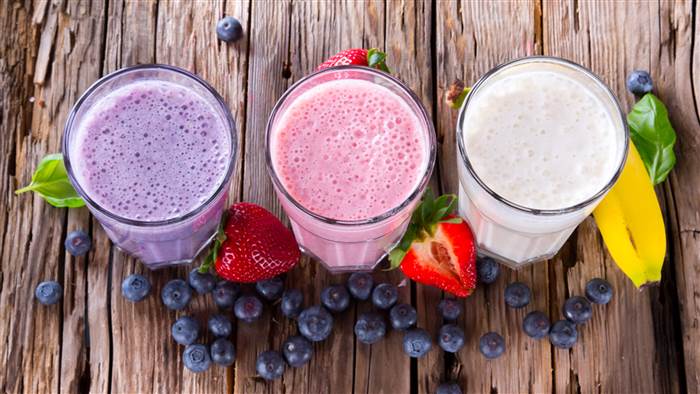
Shakes are popular among the fitness community as they contain high levels of protein. Consume them before the workout you get high levels of energy for your session, and consuming them after helps the exhausted muscles recover.
The most common shake consumed is the chocolate, due to it tasting good. However, that is not the only reason, these shakes and smoothies replenish the levels of calcium, sodium, potassium, and magnesium that the body exerts during a workout. You can always add other nutrients like chia seeds to increase the nutritional value of your shake or smoothie.
When Should You Consume Healthy Snacks?
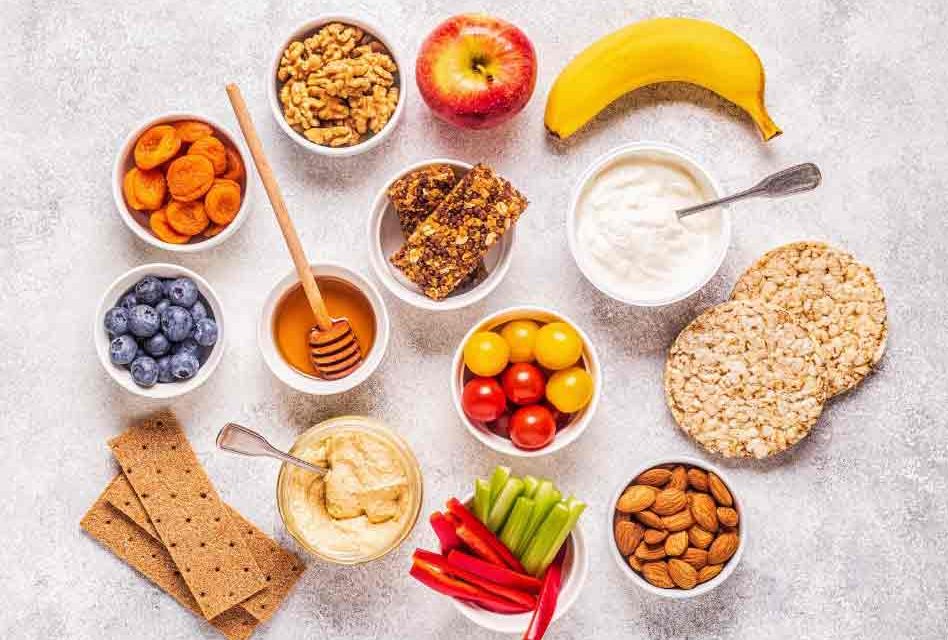
Want to follow an athletic routine? Keep in mind that there is no constant routine that you will follow. Some days will require you to consume more calories than others which will mostly be based on the level of training you’ll be doing that day. Choose your snack wisely looking at factors like the time of day, hunger level, and your weight goals.
Another factor to consider during healthy snacking is your nutrient timing. In simple words, it’s looking at the times you snack or eat something during and after your training session. This is an important area to focus on as it does affect your quality of training.
Finding the right balance is usually really confusing because if you eat heavily before a training session you will notice that you are sluggish. However, eating too little will lead to exhaustion and decreased performance. Furthermore, it mostly leads to people ignoring the plan and overeating as hunger strikes take place. A few quick tips on what types of foods you can eat throughout the day:
Foods high in fat will keep you full for a long period and will decrease inflammation. So, eating these is great if you aren’t training within 2 hours.
Looking for instant energy? Then carbohydrates are the way to go. These come in the forms of white bread and rice and the body uses these as the primary source of energy during training.
Carbohydrates also come in the form of brown rice and oatmeal; however, these nutrients digest slowly so eating them at the start of the day is ideal helping you maintain your energy levels throughout the day.
Now, let’s look at the general rules to follow when creating a nutrient plan.
Look to eat snacks that are light before a workout, to avoid gas and cramps during exercise. Snacks with quick-burning carbohydrates are bananas, dates, and crackers among many others. These allow your body to get the instant energy you need to perform your workout.
On the other hand, your post-workout plans should focus more on protein and carbohydrate intake. Carbohydrates are important as they allow your body to store the protein for muscle repair and instead burn off the carbohydrates you consume.
Protein shakes have a lot of priority due to this as the milk acts as a carbohydrate and the protein from the formula you choose to purchase. This mixture of nutrients comes in liquid form and is absorbed more easily.
Including carbohydrates after your training also maintains glycogen levels, in simpler words it stores fuel in the tank for the next workout.
How Much Snacks Should You Eat?
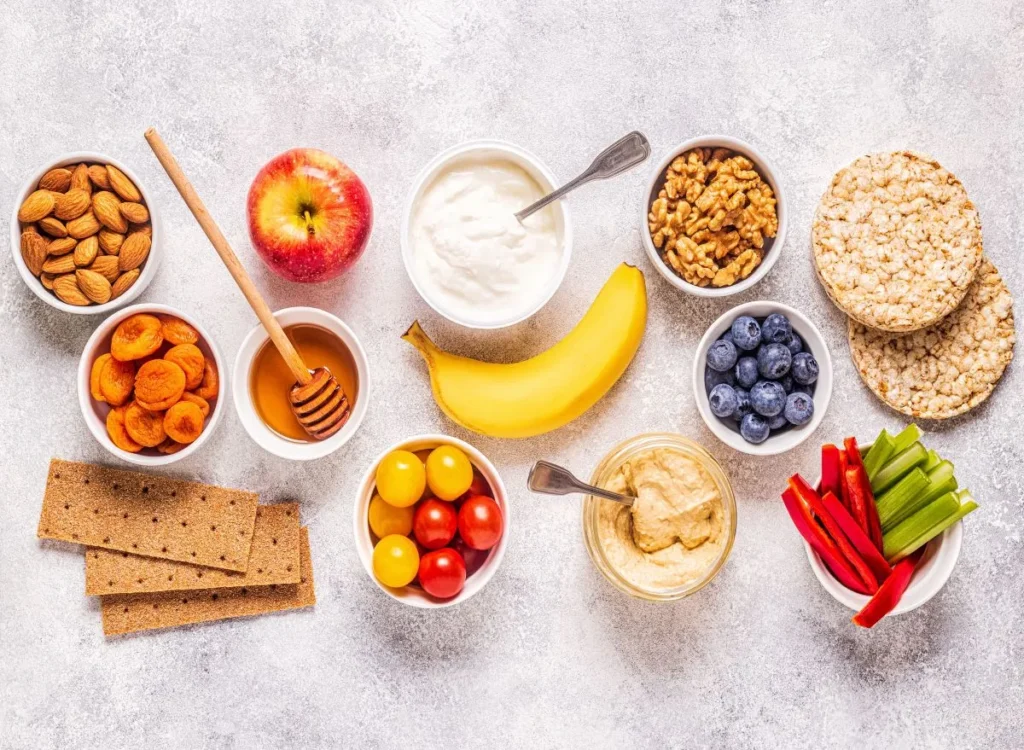
Light Snacking
On the days you don’t train it is recommended to back down on eating too many snacks. Eat the number of snacks that are enough for you to get throughout the day and maintain steady energy levels, avoiding overloading your stomach. Some great light snacks include:
- Fresh, frozen, or dried fruit: These foods contain high amounts of fiber, natural sugar, vitamins, and antioxidants that are a quick source of energy. These can include bananas, apples, apricots, and raisins.
- Veggies: Low in calories and high in fiber, minerals, and vitamins, vegetables might look dull but they do provide you with great benefits. Carrots, cucumber, and bell pepper strips paired up with dips might not be as bad as you think.
- Graham Crackers: Having a touch of sweetness, graham crackers provide high levels of carbs and are usually consumed with butter making it a great snack.
- Greek Yoghurt: Filled with healthy amounts of protein and calcium and also easier to consume, yogurt is a cheat code. It is really helpful for your gut and when paired with fruits, it is a great option for a healthy snack.
- Chickpeas: These are rich in protein, fiber, and other important nutrients. Chickpeas are usually transformed into Hummus, a delicious Arabic delicacy, and paired up with veggies and fruits making it another great option to snack on.
Moderate Snacking
This is good for days when your workouts are not that intense. These snacks are enough to allow your body to have enough fuel for your training and also help in the recovery process of the body.
Here is why moderate snacking helps:
- Maintaining Energy: Consuming healthy snacks throughout the day helps in keeping your energy levels consistent and high. This is crucial for having an effective workout later in the day. Foods like apples, string cheese, and crackers provide a healthy combination of fat, protein, and carbohydrates, keeping you energized.
- Recovery: After a workout, your body must recover so that it is ready to go again. After a workout snacking on Greek yogurt, smoothies, and Milk, refill glycogen, which assists in repairing and rebuilding the muscle.
- Variety: Including vegetables, fruits, and other foods allows your body to take in different nutrients and make the most out of them during your training.
- Digestion: On the days that you don’t work out intensely, not eating too many snacks can ease the process of digestion. Causing less discomfort and laziness during workouts.
There is no hard and fast rule in the number of snacks to consume and the types. Each individual has their preference and tolerance. The timings should be adjusted based on how your body responds which can only be known when you experiment.
Heavy Snacking
Having a heavy snack is almost equivalent to having a mini meal. It has larger proportions filled with carbohydrates, fats, and proteins. This is taken on days when the training is highly intense, and long.
During these types of training, you must have enough fuel to burn, or else it can cause various health issues. This routine consists of snacks like sandwiches (PB&J, Tuna, Chicken), crackers preferably along with cheese, omelet, and fruits.
Conclusion
So, there you have it, healthy snacking is a vital part of an athlete’s routine if he/she puts together the right plan and executes it strictly as it can support performance during training, help recover after a workout, and increase their overall well-being.
Ultimately, athletes will benefit the most if they follow a science-backed and well-balanced diet. Looking at points like nutrient timing and consuming the right types of healthy snacks throughout the day will lead to their performance in the gym or games to increase. It will also help in recovery ensuring minimum injuries occur.
Whether you dream of being an athlete or just want to have a healthy lifestyle, healthy snacking can be a game-changing addition to your lifestyle.

